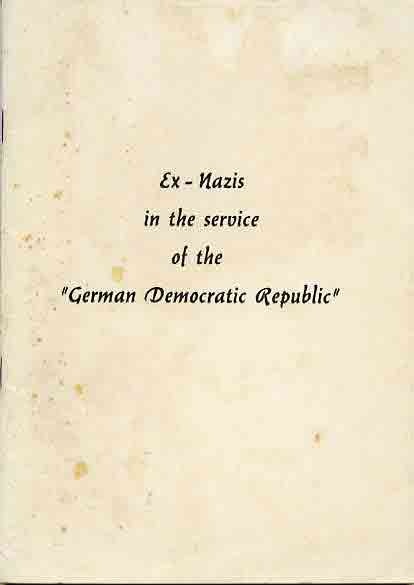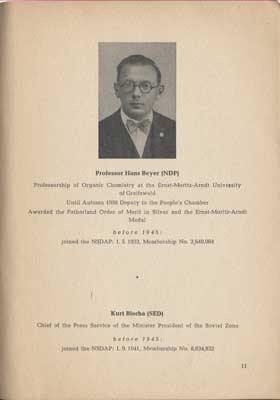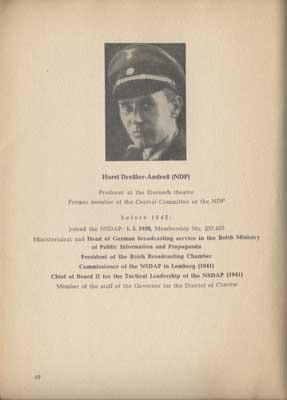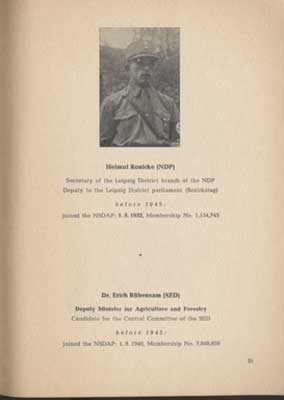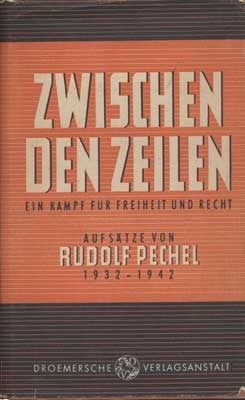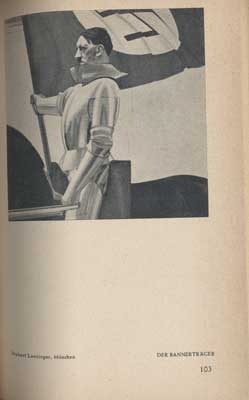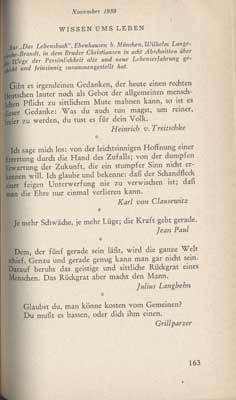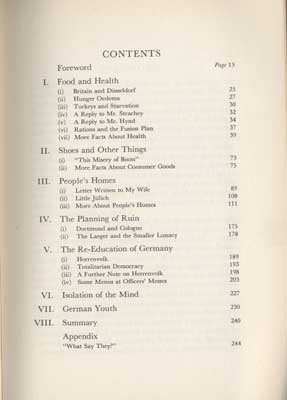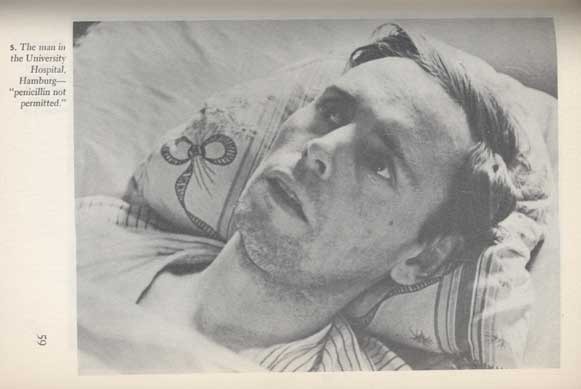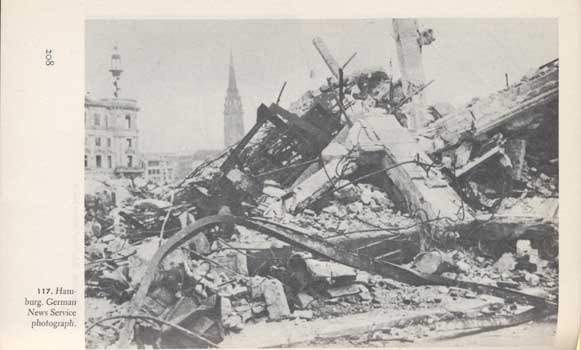Postwar
In the years following World War II, Western Europe found itself in a state of disarray. The Allied powers were victorious, but both Axis and Allied nations were left reeling from the death and destruction caused by war.
Post-war Germany suffered more than most nations. As the main aggressor in Europe, the nation was left dealing with the aftermath of the brutality of the Nazi regime and the suicide of many of its most prominent political figures.
Many of the books published during this era are representative of the bewilderment of the German republic and functioned as attempts to condemn what their political leaders had done. For the German people who had been controlled by the NSDAP for so long, it became necessary to discover the truths behind German military actions, as well as assisting the world in the deliverance of justice for war crimes committed by NSDAP officials.
Ex-Nazis in the Service of the “German Democratic Republic.” Berlin: Investigating Committee of Free Jurists, 1959.
Published in 1959, this text expresses the consequences of war and the lingering mistrust of the German people nearly 15 years after the conclusion of World War II. The book provides a listing of former members of the Nazi party that had been given state service jobs in the new German Democratic Republic.
Rudolf Pechel
Zwischen den Zeilen. Wiesentheid: Droemersche Verlagsanstalt, 1948.
This book is intended to give a documentary-like account of the underground German resistance to the NSDAP. It features essays and speeches that span the decade between 1932 and 1942, describing the struggle for freedom of thought, truth, justice, and humanity. These documents are presented as an eyewitness account of recent German history.
Victor Gollancz
In Darkest Germany. Hinsdale, Ill.: H. Regnery Co., 1947.
A compilation of Victor Gollancz’s previously published newspaper articles as well as some unpublished materials, In Darkest Germany contains the ethnographic observations of Gollancz during two months in 1946. When asked why he wrote sympathetically about the German postwar condition, Gollancz states:
I feel called upon to help suffering Germans precisely because I am a Jew . . . it is a question rather of plain, straight commonsense, undeflected by that very sentimentality which deflects the judgment and corrupts the spirit of so many.

